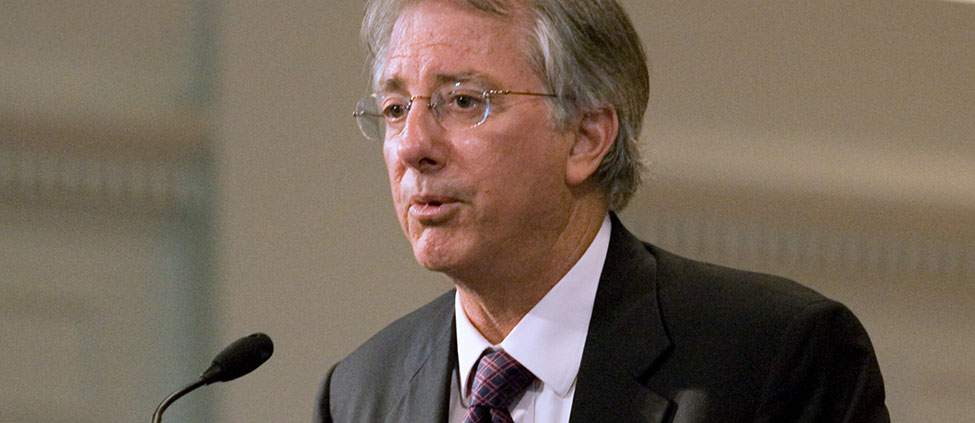FRESH AIR
Amb. Dennis Ross: Premature Palestinian state recognition should be discouraged
July 7, 2017 | Ahron Shapiro

At an exclusive AIJAC press briefing in Melbourne, Anti-Defamation Commission guest and veteran former US Middle East peace envoy and Ambassador Dennis Ross spoke out against calls for the immediate recognition of a Palestinian state, saying such gestures place ‘symbols over substance’ and makes peacemaking harder.
Recently, resolutions were passed in the Labor-controlled South Australian parliament and at the Tasmania state Labor conference urging the recognition of a Palestinian state, while all eyes are on the influential New South Wales state Labor conference later this month where a similar resolution is being considered.
When asked whether such resolutions should be encouraged or discouraged, Ross said:
It should be discouraged, for a simple reason. I would say the thing that plagues the Palestinian National Movement more than anything else has been an historic preoccupation with symbols, not substance. Instead of building a state, the Palestinians would like to get a flag. Give me a flag at the UN. The day after they get a flag at the UN, nothing changes. The cynicism among Palestinians is a function of seeing nothing changes. And the instinct to pursue the symbols is, symbols are great and doesn’t require anything of us.
Well, building a state actually requires something of them. It actually requires assuming responsibility, assuming a kind of accountability. Being prepared to make hard decisions. Pursuing the symbols is a way of avoiding the hard decisions. You don’t do the Palestinians and their national movement any favors when the message to them is, let’s continue pursuing the symbols.
Look, we have 130 countries now recognise us. Does that change one iota on the ground? Not at all. I think, you know, the message to the Palestinians should be, we’d like to work with you on building a rule of law. We’d like to help build your infrastructure. We’re going to recognise you as a state, and, of course, you won’t be a state and nothing is going to change on the ground and the day after you win applause for that people look around them and say, once again, we were promised things and nothing changes. That also deepens disbelief. But the instinct to reach for the symbol, to avoid real decisions, to feel that you don’t have to deal with Israel, because the international community will solve it for us. When the international community solves it for us, again, it won’t require anything of us.
One of the hard problems when you get the UN resolutions is, nothing is ever required of the Palestinians. I’m a big believer [that] both sides have responsibilities. Both sides have obligations. I have no problem asking something of the Israelis. I have a hard time asking only of the Israelis. You know, there is supposed to be two states for two peoples. It can’t be that all the onus is on one side.
Yes, Israel is the stronger party. That has frequently been used as kind of an excuse to say, well they are the ones who have to do things, not the Palestinians. And that’s a mistake for the Palestinians. It delays the day when they will actually have a state.
So, mark me down as someone who is not a fan or believes in that.
At the press briefing, Ambassador Ross discussed a range of issues affecting the Middle East, including the Iranian threat, the war in Syria, the blockade of Qatar, the fight against ISIS and Islamist extremists.
Warning against power vacuums that invariably get filled by “some of the worst elements”, Ambassador Ross provided his take on what the US could have done better policy-wise and, he said, what must be done to repair the damage, particularly in regard to addressing the inherent weaknesses in the Iranian nuclear deal.
Ambassador Ross’s remarks on these topics will be featured in the August edition of the Australian-Israel Review, due later this month.
Ahron Shapiro
Tags: Israel
RELATED ARTICLES

He survived Bondi. Now he’s fighting back: Arsen Ostrovsky addresses AIPAC conference

US Middle East strategy amid regional instability: Dana Stroul at the Sydney Institute





















